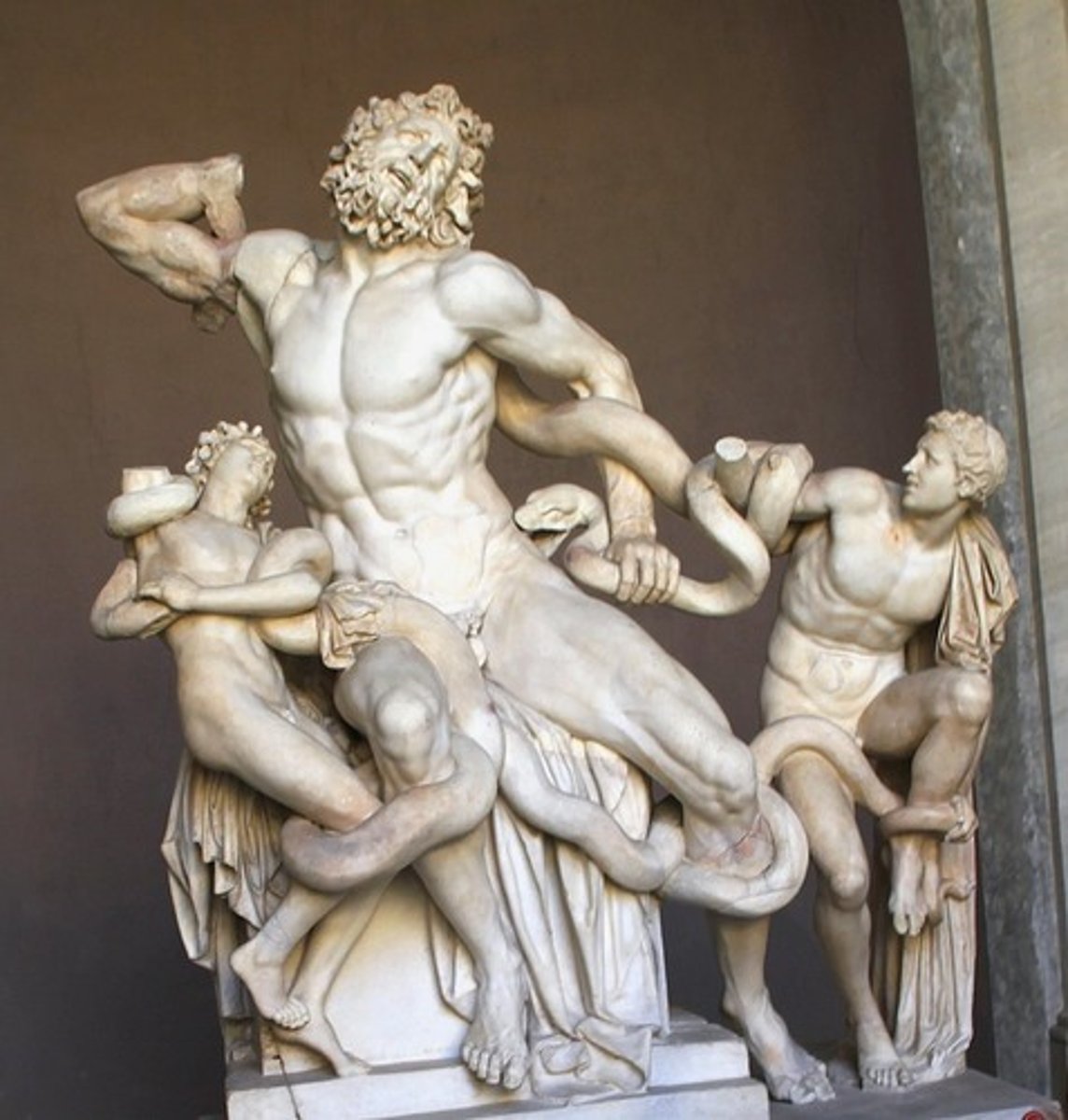Hellenistic Art
1/39
There's no tags or description
Looks like no tags are added yet.
Name | Mastery | Learn | Test | Matching | Spaced | Call with Kai |
|---|
No analytics yet
Send a link to your students to track their progress
40 Terms
What are the defining characteristics of the Hellenistic movement, thematically and visually?
Change in world view, foreign influences, cosmopolitan, magnificent, more individualized, king patronage
What event marks the beginning of the Hellenistic period and what event marks the end of the Hellenistic period?
begin: Death of Alexander the Great
end: The emergence of the Roman Empire
Who are the architects of the Temple of Apollo, Didyma?
Paionios of Ephesos and Daphnis of Miletos
How is the Temple of Apollo different than previous temples?
Most of the steps are too big to be practical and the columns are gigantic
What does the term Hypaethral mean?
Hypaethral - an open air building
What is a stoa?
Stoa - long interior sheltered building, open on one side, closed on the others
What is the purpose of the Stoa of Attalos II, Athens?
A shopping center or mall
What two works celebrate the victory of King Attalos I over the Gauls in Asia Minor?
Gaul Killing Himself and his Wife
Dying Gaul
How is the subject matter of the Gaul Killing Himself and his Wife from the Victory Monument of Attalos I differentiated from High Classical art?
There is explicit violence, something not included in Classical art
What emotions are depicted in Hellenistic art as seen in Dying Gaul?
Pain and suffering
What is depicted on this Gaul sculpture that we have never seen before?
He has a mustache
Victory Monument of Attalos I
http://classconnection.s3.amazonaws.com/1875/flashcards/758486/jpg/ahs56.jpg
What characteristics of the Hellenistic are depicted in the Seated Boxer and the Old Market Woman and what effect does this have on the viewer?
Seated Boxer
• Older, not idealized but the realistic boxer, the real athlete
• The face shows the damage done by his boxing career
Old Market Woman
• Showing her age, depicting class and weakness
• The reality of life
What is the more recognized Roman name of the Aphrodite of Melos sculpture?
Venus di Milo
How is the Aphrodite of Melos sensualized?
Her body is idealized and nude and she looks away (aloof) allowing the viewer to look
How has Aphrodite evolved in sensuality in Aphrodite, Eros, and Pan?
Sexuality has been added, Aphrodite has fully nude and the entire scene is sexualized
What does kallipygous mean and how is it displayed in the Aphrodite Kallipygous sculpture?
Kallipygous - Aphrodite of the beautiful butt
- Aphrodite is shown looking behind her, admiring her own butt
What is a faun or a satyr?
Faun/satyr - forest god, one with goat-like features
What do the facial features of the Sleeping Satyr (Barberini Faun) suggest?
An unpeaceful sleep, nightmares maybe
Where was the Winged Nike (Victory) of Samothrace sculpture originally placed?
Inside a naval monument with a fountain
How is the movement depicted in Winged Nike? What sentiments does it represent?
Wing is created by the forward movement of the figure
- Power
The frieze of the Great Altar of Zeus, Pergamon is an example of what subject?
Gigantomachy - battle of Olympian gods verses the giants
What may the frieze of the Great Altar of Zeus represent?
The recent battle against the Gauls
What emotional state is depicted in the Athena Battling Alkyoneus that is of the Baroque style?
Baroque style - full of energy, violence and emotion
What Late Hellenistic/Early Roman sculpture depicts a Trojan priest and his sons and who are the sculptors?
Laocoön:
Athanadoros, Hagesandros, and Polydoros of Rhodes
What is the story behind the sculpture, Laocoon?
- Laocoön attempted to warn the Trojans that the horse was a trick but was killed by snakes from the gods because he went against them
Temple of Apollo
Didyma
Paionios of Ephesos & Daphnis of Miletos
313 BCE
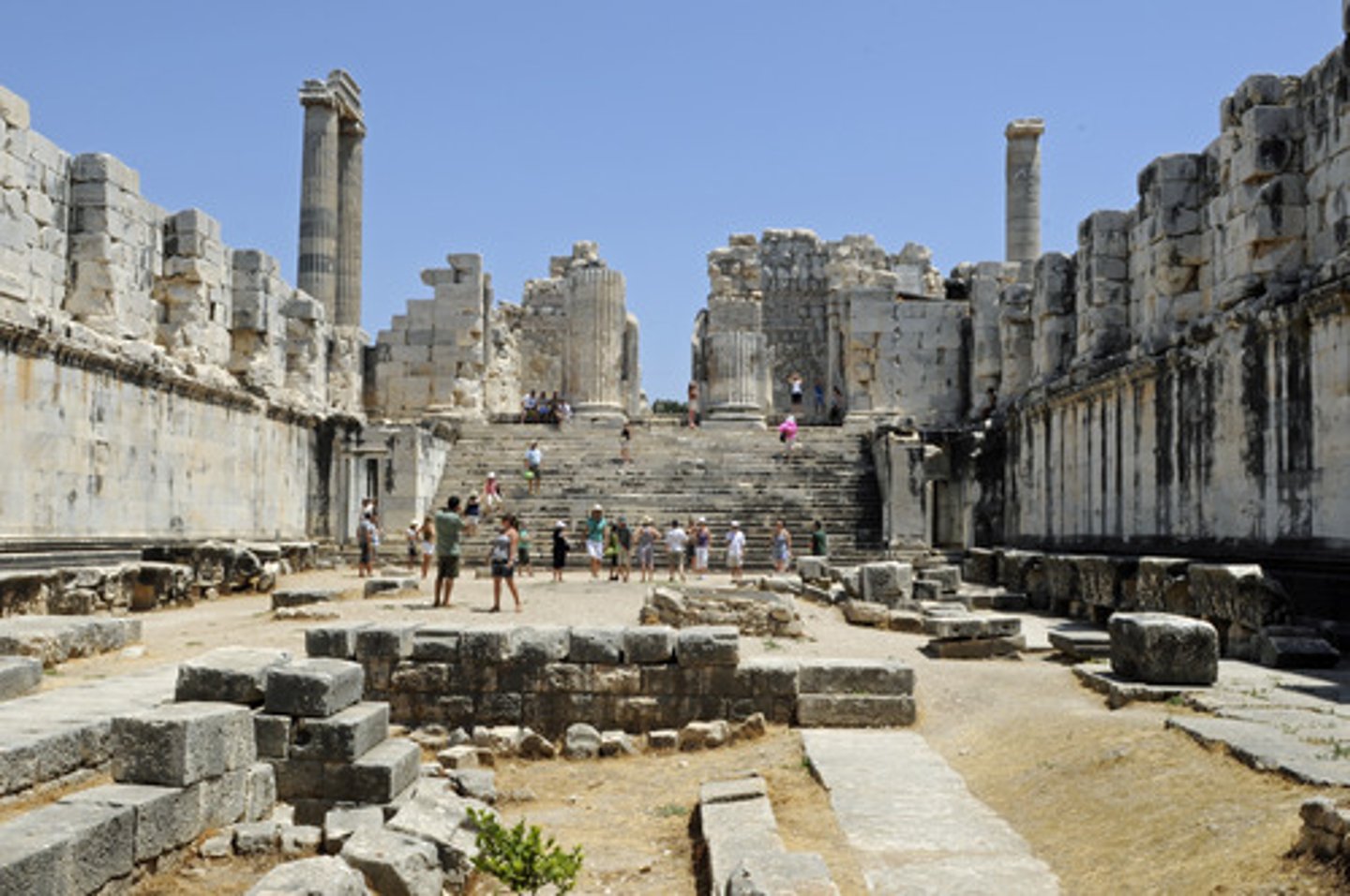
Stoa of Attalos
Athens
150 BCE
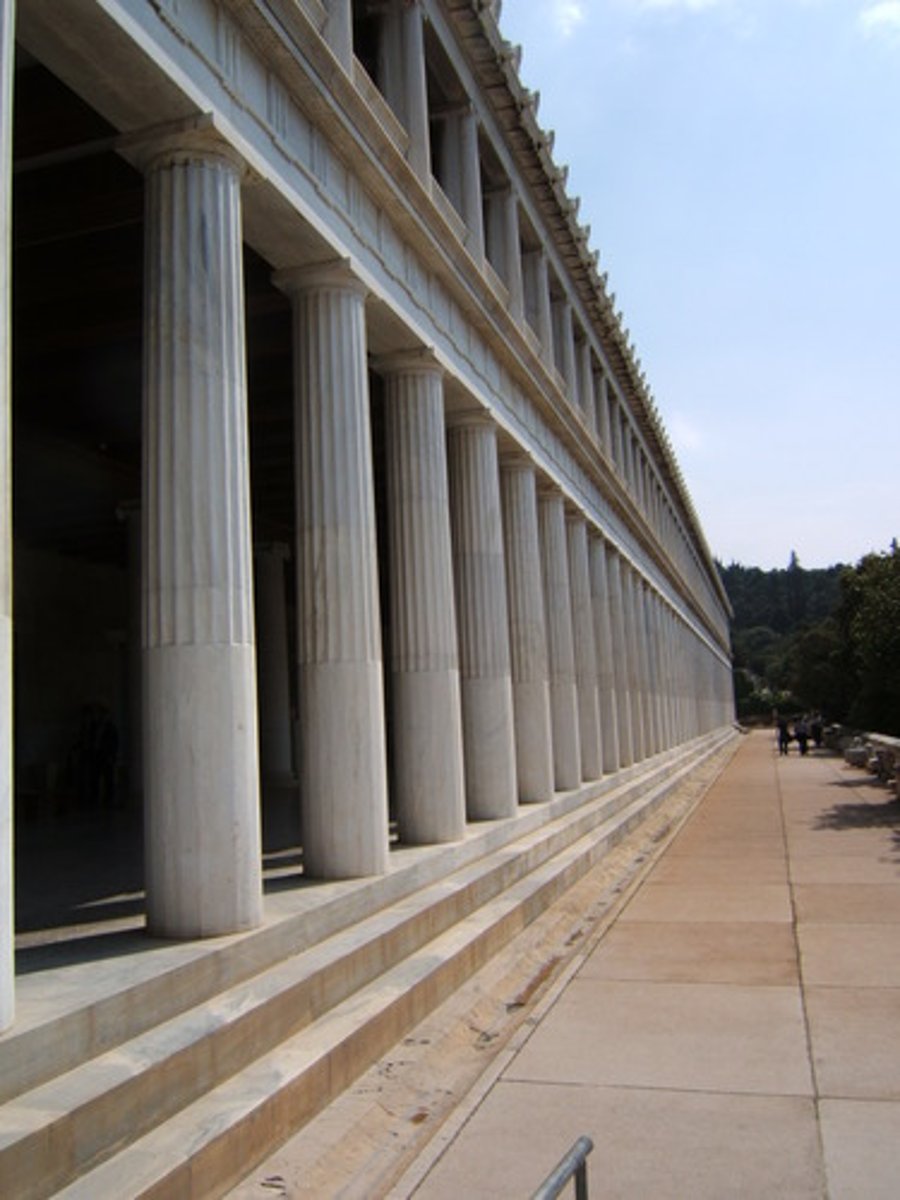
Gaul Killing Himself and his Wife
part of Victory Monument of Attalos
Pergamon
230-20 BCE
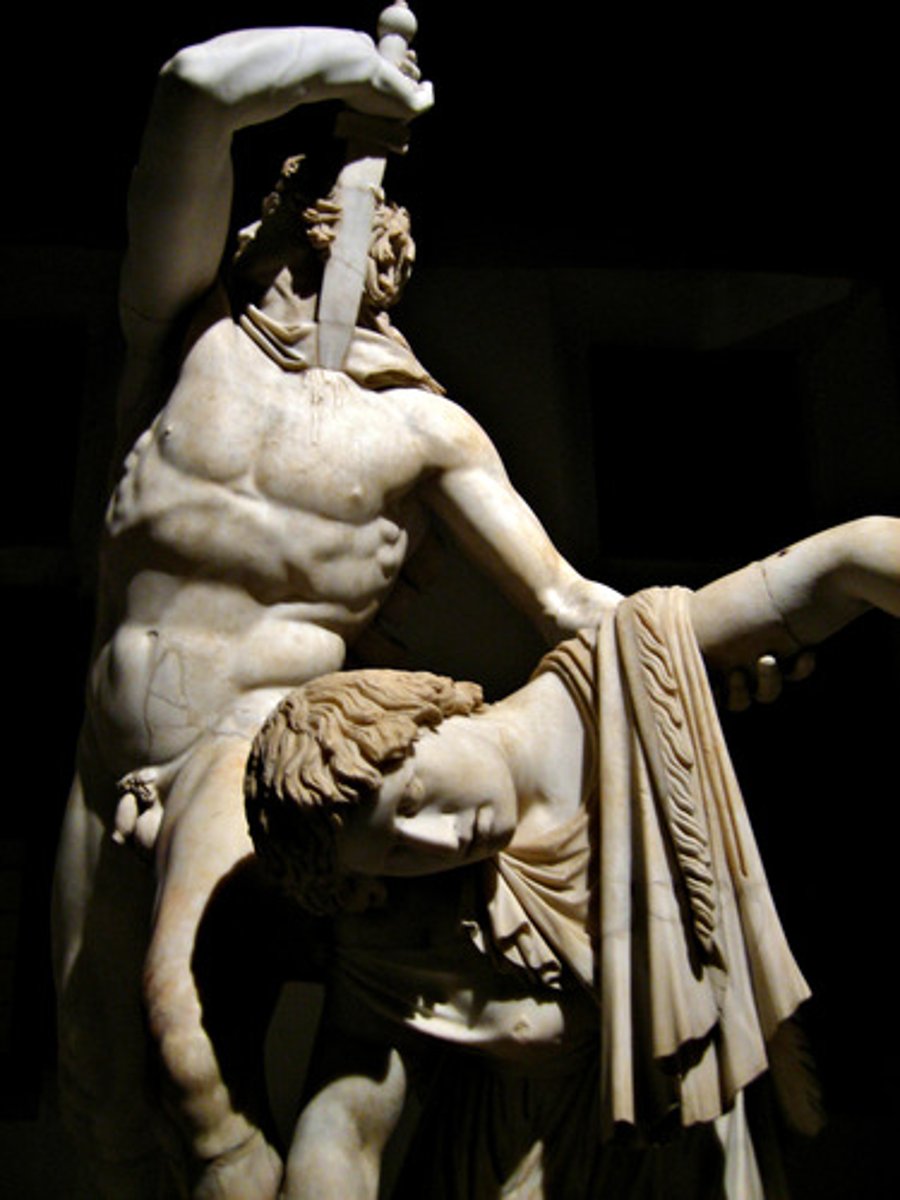
Dying Gaul
part of Victory Monument of Attalos
Pergamon
230-20 BCE
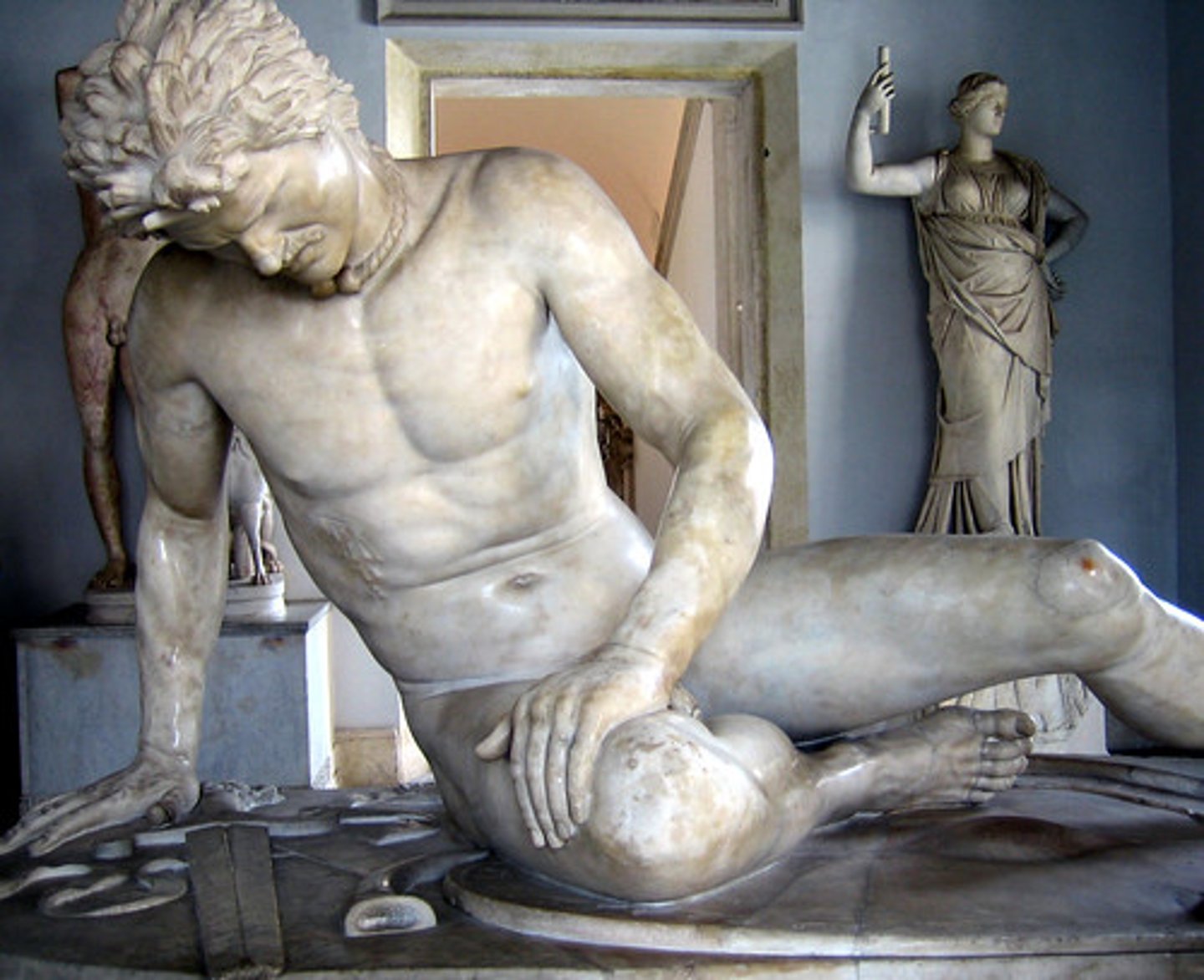
Seated Boxer
Rome
100-50 BCE
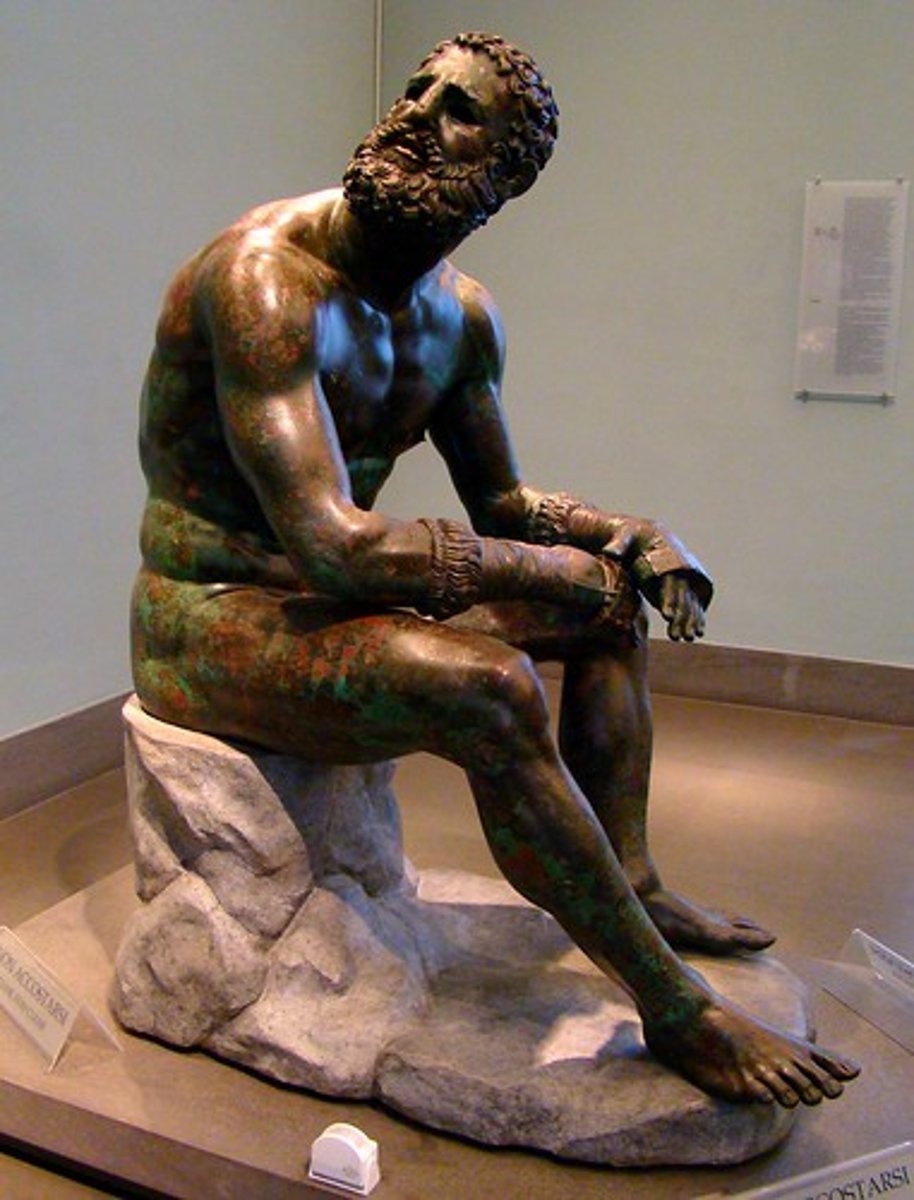
Old Market Woman
150-100 BCE
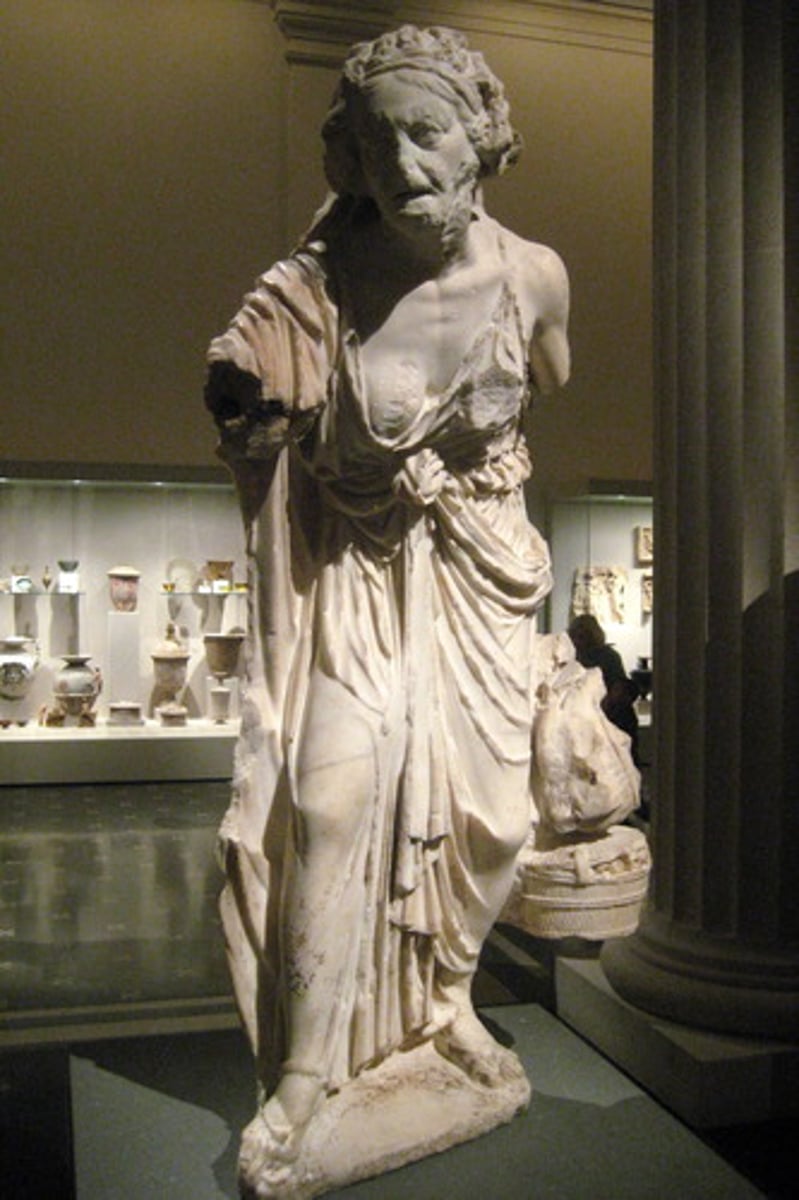
Aphrodite of Melos
150-125 BCE
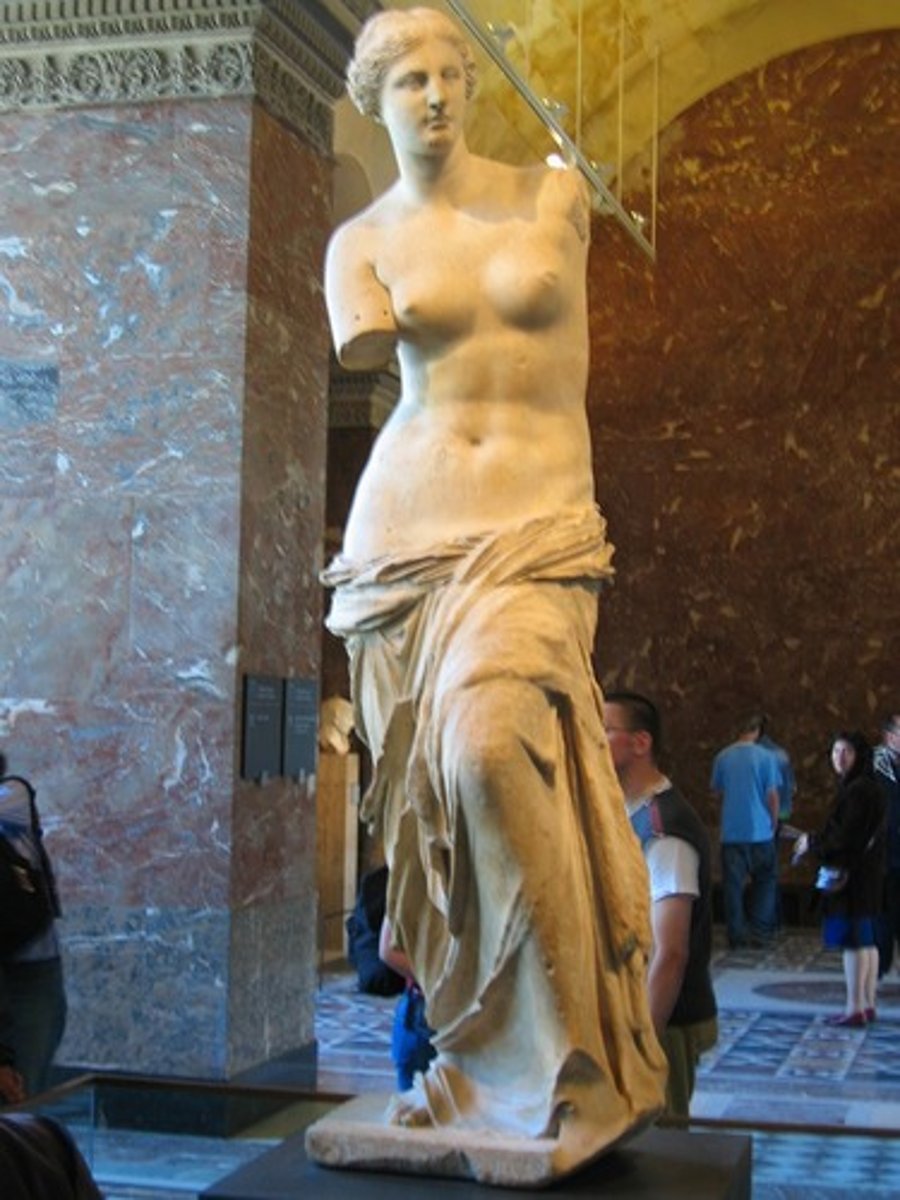
Aphrodite, Eros and Pan
Delos
100 BCE
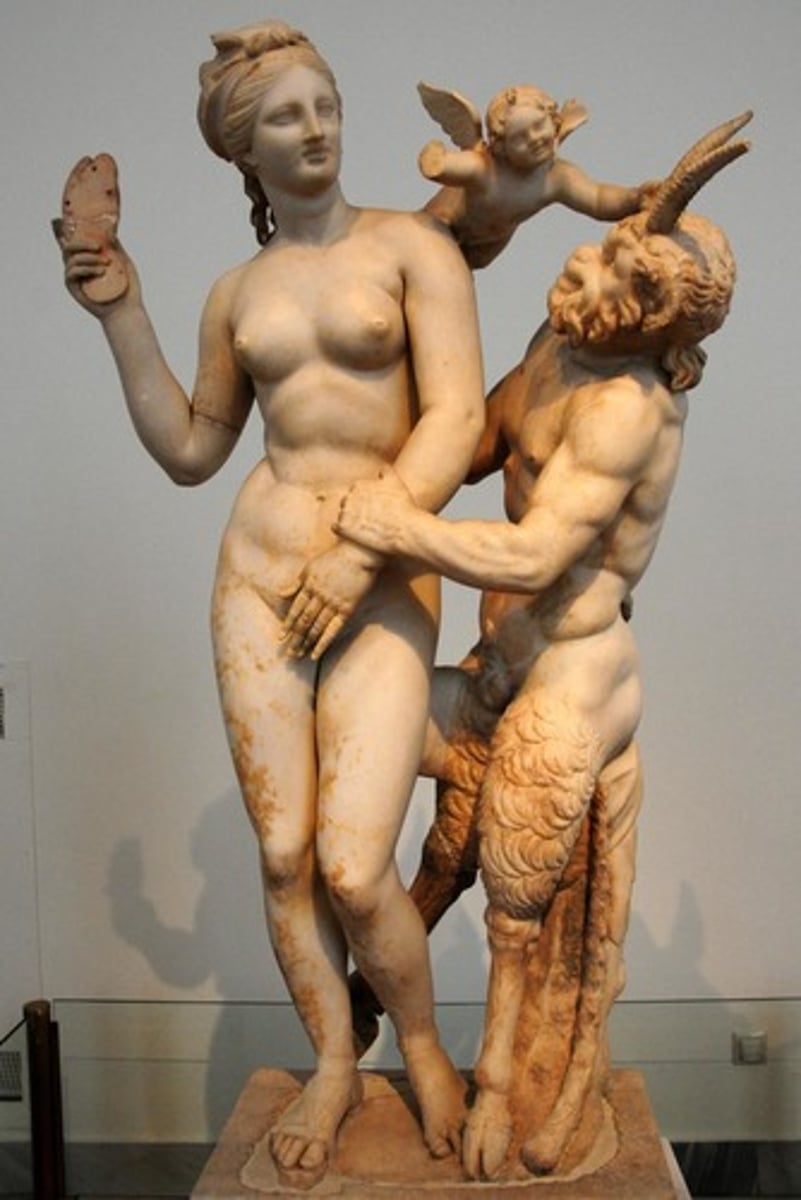
Aphrodite Kallipygous
http://upload.wikimedia.org/wikipedia/commons/7/7e/Aphrodite_Kallipygos-Hermitage_cut.jpg
Sleeping Satyr
(Barberini Faun)
230-200 BC
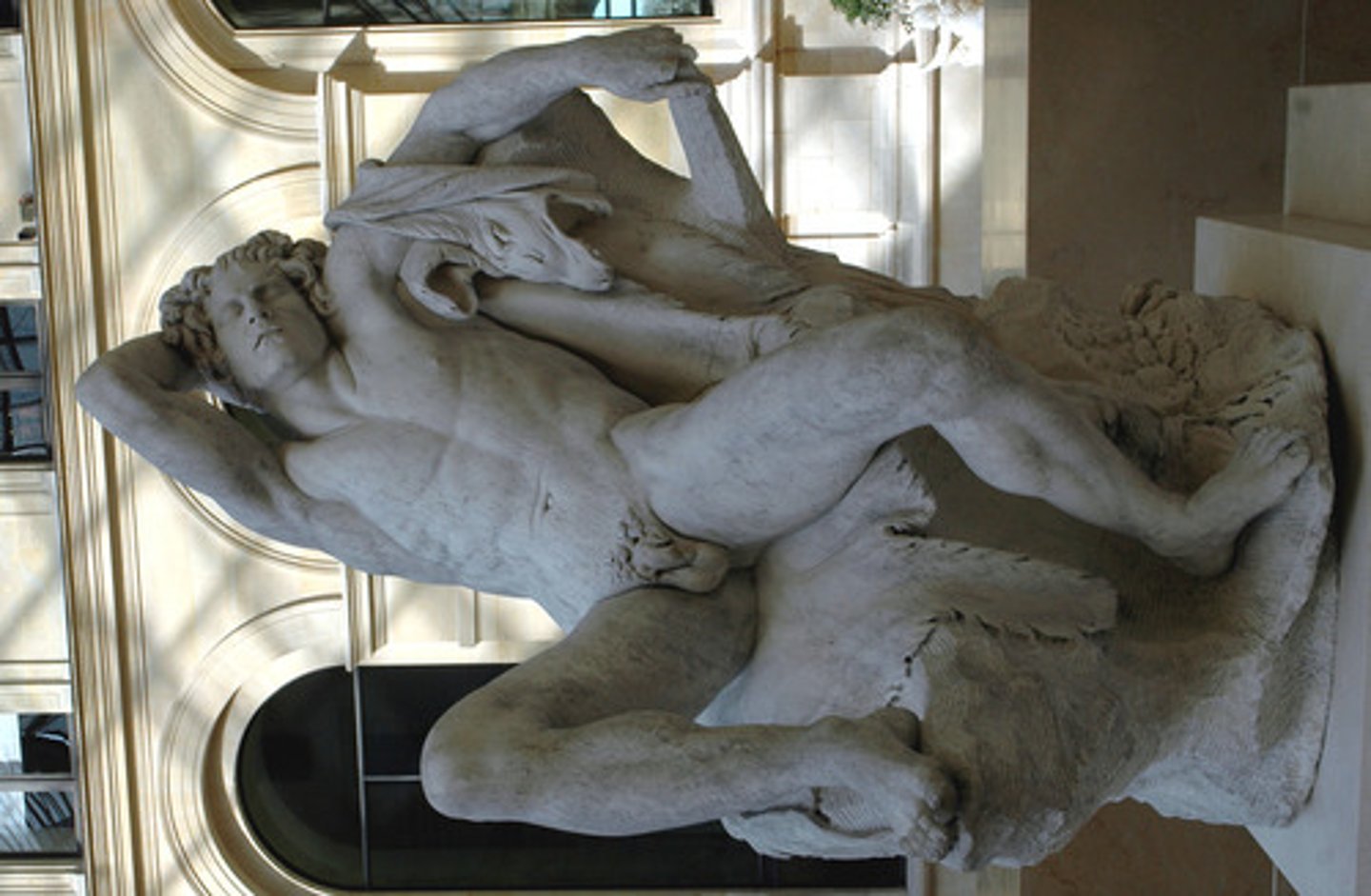
Winged Nike (Victory) of Samothrace
190 BC
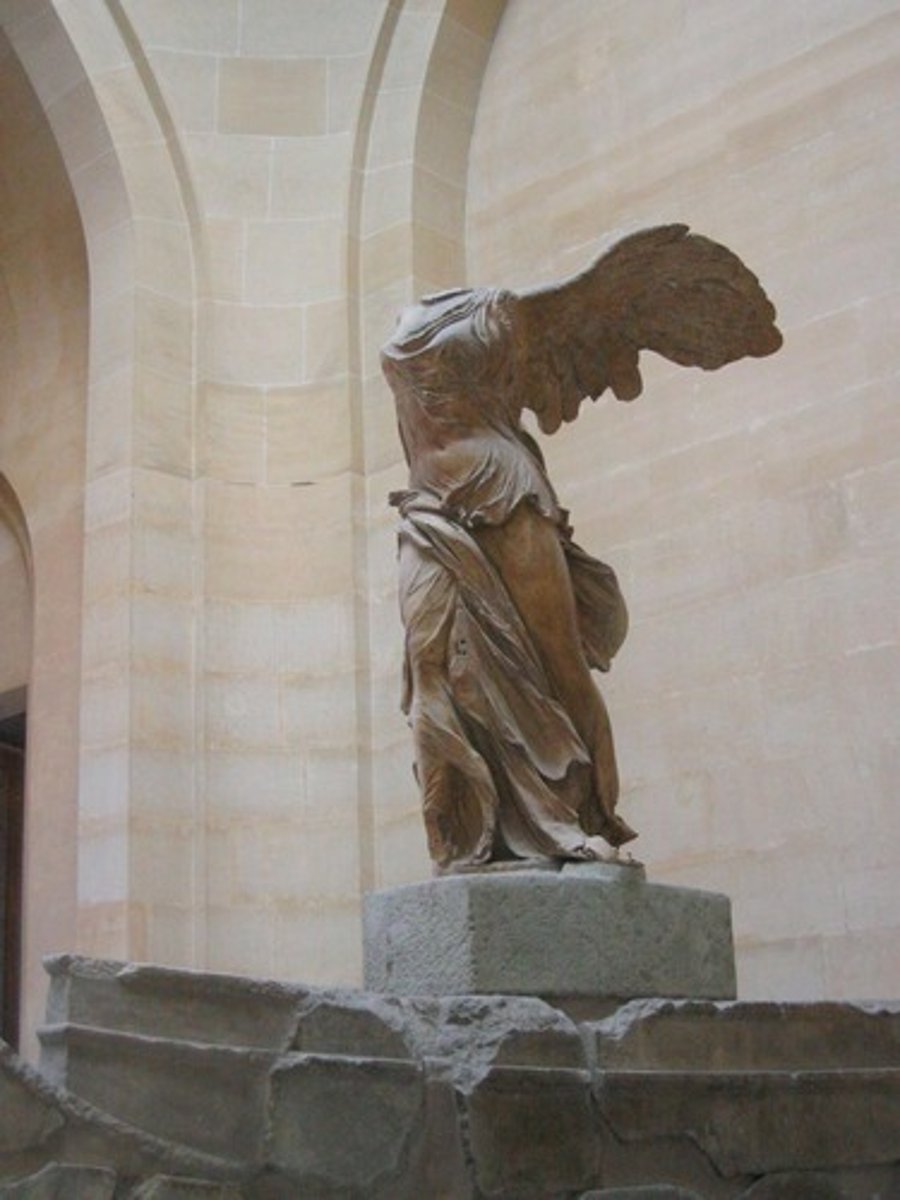
Great Altar of Zeus
Pergamon
175 BCE
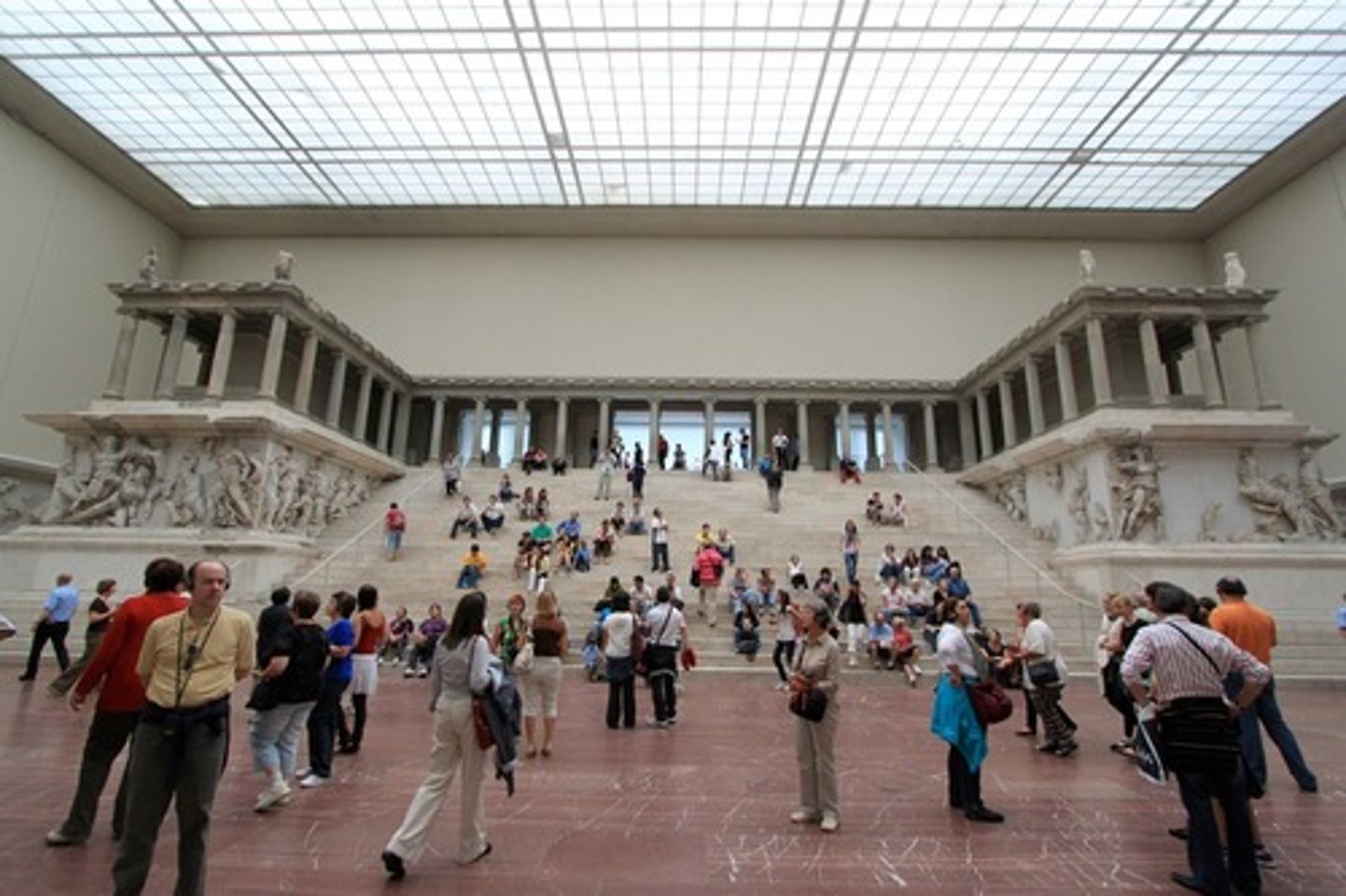
Athena battling Alkyoneus
Gigantomachy frieze
Altar of Zeus
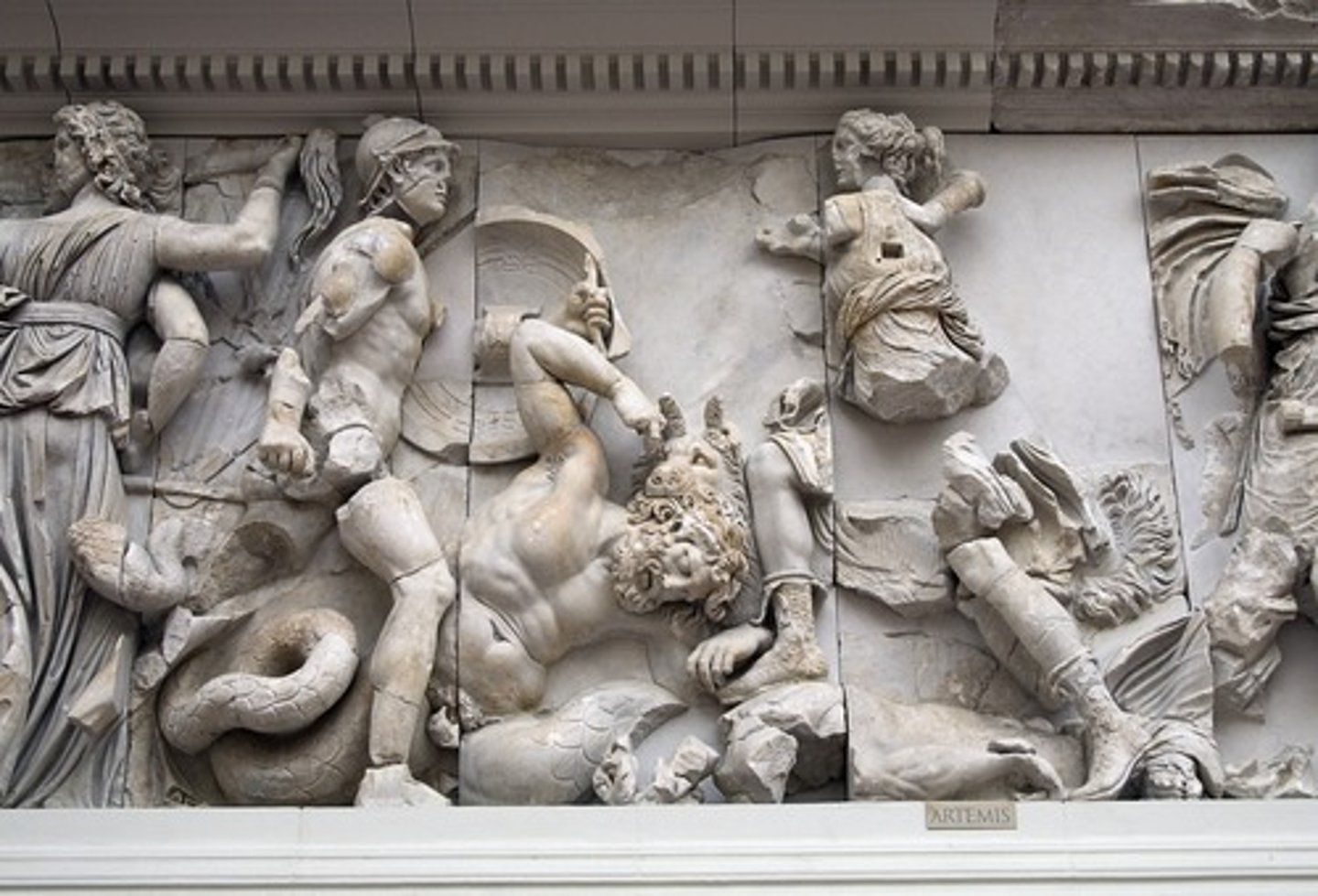
Laocoon
Athanadoros, Hagesandros and Polydoros
Early 1st century CE
